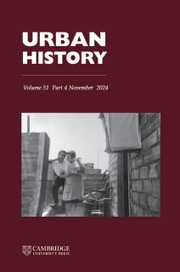Oil is typically assumed to have ruinous ramifications on cities in the Global South. For that reason, it would be easy to imagine that the present crisis in Kirkuk, an oil city in Iraq, is all about oil. Not so, according to City of Black Gold. This book is, therefore, unusual and original. With written sources largely unavailable because they were deliberately burned or buried, neither documented sources nor archival research in Kirkuk yields much. Theoretically, interviews with Kirkukis abroad could provide the necessary information, but not in practice. The circumstances leading to their sojourn persist: trauma has a long life and potential Kirkuki interviewees say little, if anything, about their experiences. Written works, both ‘works of memory’ and those based on documents, exist; but facts are often laced with fantasies. The book’s careful, painstaking, multi-sited and rigorous historical investigations are, therefore, tonic.
City of Black Gold demonstrates that the crisis in Kirkuk – reflected in the contradictions between ethnicity and economy – is hardly a simple case of the fortuitous presence of oil or any other zero-sum framework for that matter. Kirkuki identities – an embroidery of Kurds, Turkmens and Arabs – over which wars have been fought are more fluid than are often assumed. Historically, these questions of identity were always present, but the imposition of Britain as a neocolonial power, roughly from 1920 to 1932 (pp. 36, 51, 43–4) calcified them. British patronage politics along with divide and rule tactics in Kirkuk led not to more hybridization in the city, but to visceral divisions and discontent for Kirkukis. Simultaneously, Britain extracted substantial rents from its urban social engineering, contradictions that metastasized into acrimonious conflicts with the discovery of oil.
At the behest of the Iraqi Petroleum Company (IPC), oil housing estates were patterned after the same ethnic divisions cleft in the city between 1946 and 1958 (pp. 108–9). Oil-based housing development was established to prevent labour unrest and audition the wonder of capitalism. Yet, this ideology institutionalized ethnic divides because minorities, especially Kurdish people, were marginalized in the urban development and housing projects (pp. 116–17).
Throughout this period, Kurdish people were excluded, both at work and at home. White workers were favoured. The city existed and flourished before oil, and the post-oil boom would not have been possible without the contributions of ordinary Kirkukis. And yet, IPC siphoned most of its resources away from Kirkuk with the tacit claim that these were profits by a business entity. Baghdad, the Iraqi capital, was not really an ally, certainly not in the sense of obtaining more rents for Kirkuk. In fact, Baghdad, too, drained resources from Kirkuk. Accordingly, when the IPC was eventually nationalized in 1972 (p. 157), the control of Kirkuk fell into the hands of Baghdad, governed by an Arab state that sought to further eviscerate any remnants of hybridity. Arabian homogeneity became ascendant and, to this day, remains hegemonic.
To illustrate these arguments, City of Black Gold is divided into six chapters, sandwiched between an introduction and a conclusion. The introduction sets the scene, highlights the key arguments and maps out the structure of the book. Chapter 1 is about the making of Iraq as a nation-state. Chapter 2 details British meddling in, and control of, Iraq broadly and Kirkuk specifically. The discovery of oil and how it transformed Kirkuk are the focus of chapter 3. The specific ideology of urban development is discussed in chapter 4, while an analysis of conflicts among various groups in Iraq is detailed in chapter 5. Nationalization and the hegemony of the Arab identity are discussed in chapter 6.
Future editions could put Kirkuk in a wider conversation with other oil cities in Iraq, elsewhere in the Global South and around the world. As noted by Ferdinand Braudel, ‘I doubt that a study of a city…can be the object of…enquiry…without inserting it in the historical long-term…within the context of the countryside that surrounds it, and…within those archipelagos of neighboring cities.’Footnote 1
Even so, this book had to be written. For historians of Iraq and Middle East specialists, every chapter in this book is a must read. For other readers, the introduction, chapters 3 (‘Oil and urban growth’), and 4 (‘The ideology of urban development’) are particularly recommended. City of Black Gold is original in its sources of inspiration, creative in its approach and even-handed in its overarching treatises.



